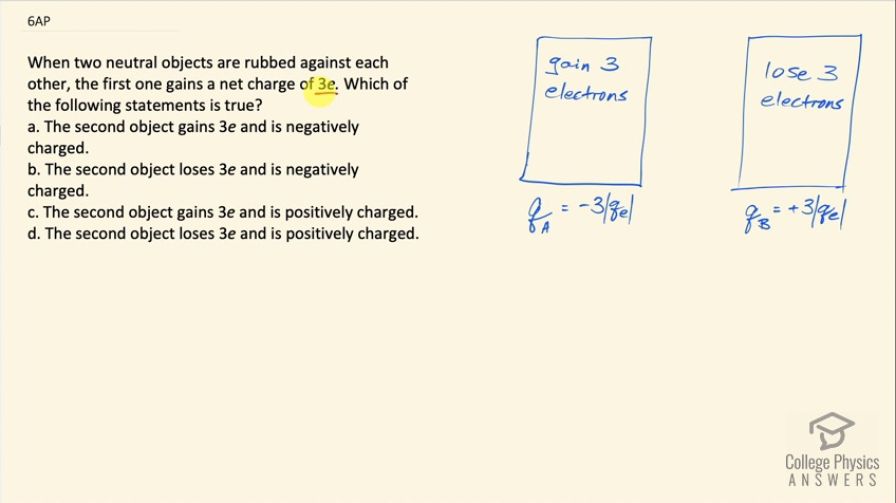Question
When two neutral objects are rubbed against each other, the first one gains a net charge of 3e. Which of the following statements is true?
- The second object gains 3e and is negatively charge
- The second object loses 3e and is negatively charge
- The second object gains 3e and is positively charge
- The second object loses 3e and is positively charged.
Final Answer
(d)
Solution video
OpenStax College Physics for AP® Courses, Chapter 18, Problem 6 (Test Prep for AP® Courses)

vote with a rating of
votes with an average rating of
.
Video Transcript
This is College Physics Answers with Shaun Dychko. Two initially neutral objects are rubbed together and the first one gains a net charge of 3e, which we take to mean gaining three electrons and that will give it a charge of negative 3 times the elementary charge— the magnitude of the elementary charge— and so for this to gain three electrons, the other object must have lost three electrons in order for the net charge to stay zero because the net charge can't change since charge can be neither created nor destroyed. So for every gain in one object, the other object must have an equal amount of loss. So this has lost three electrons, which will expose three unpaired protons and it will have a charge of positive three times the magnitude of the elementary charge. So the answer is (d): the second object loses three electrons and is positively charged as a result.